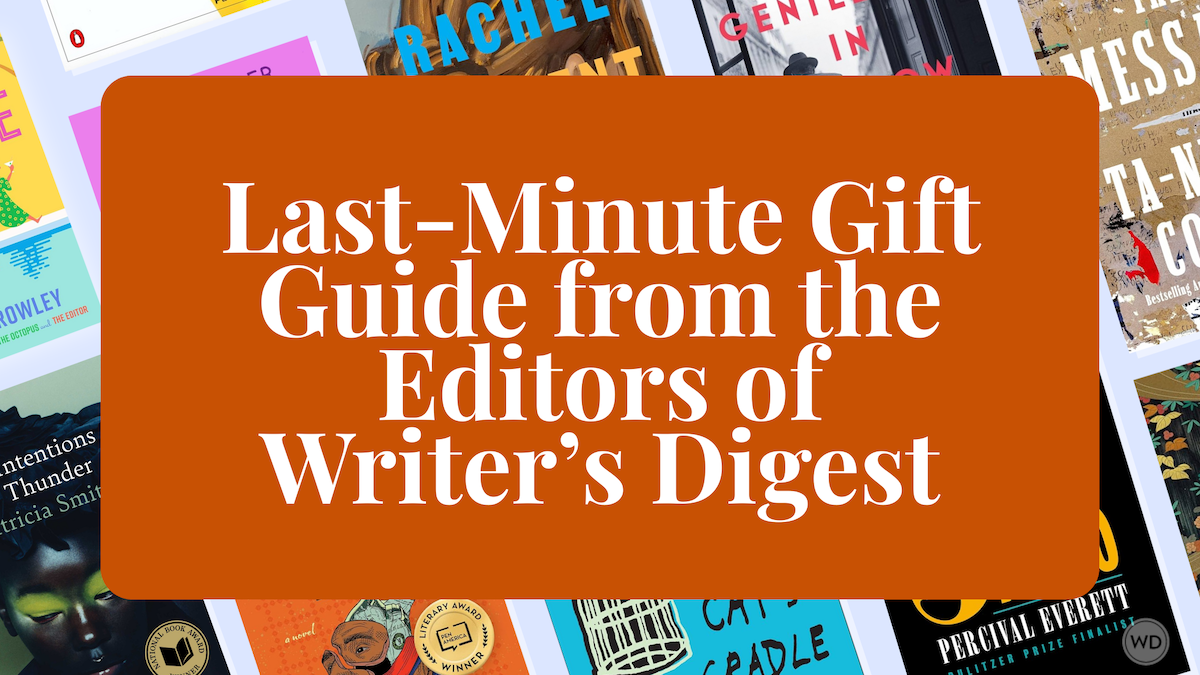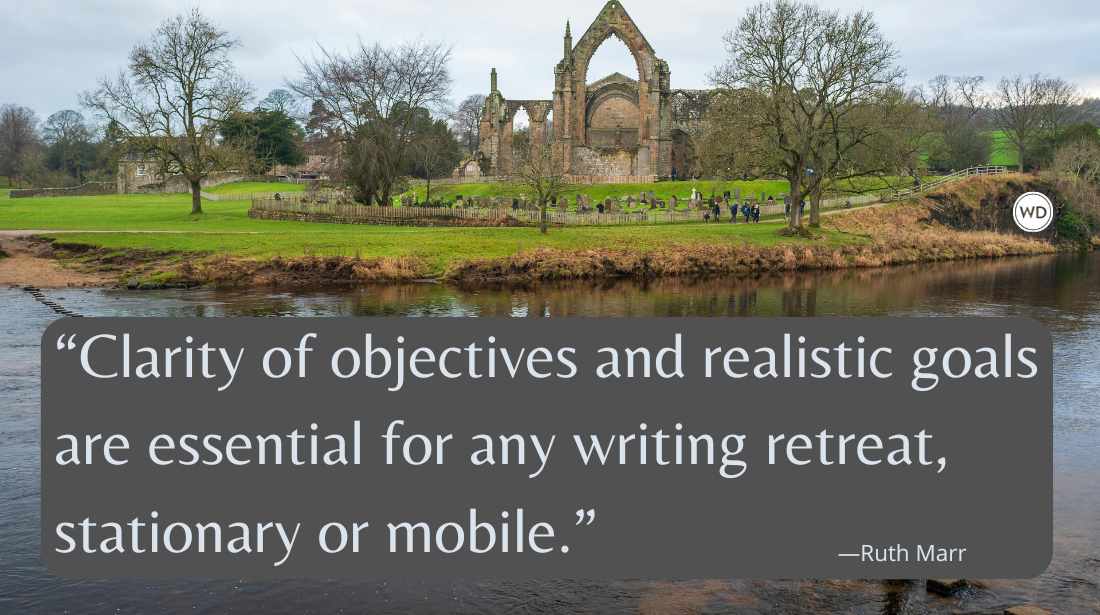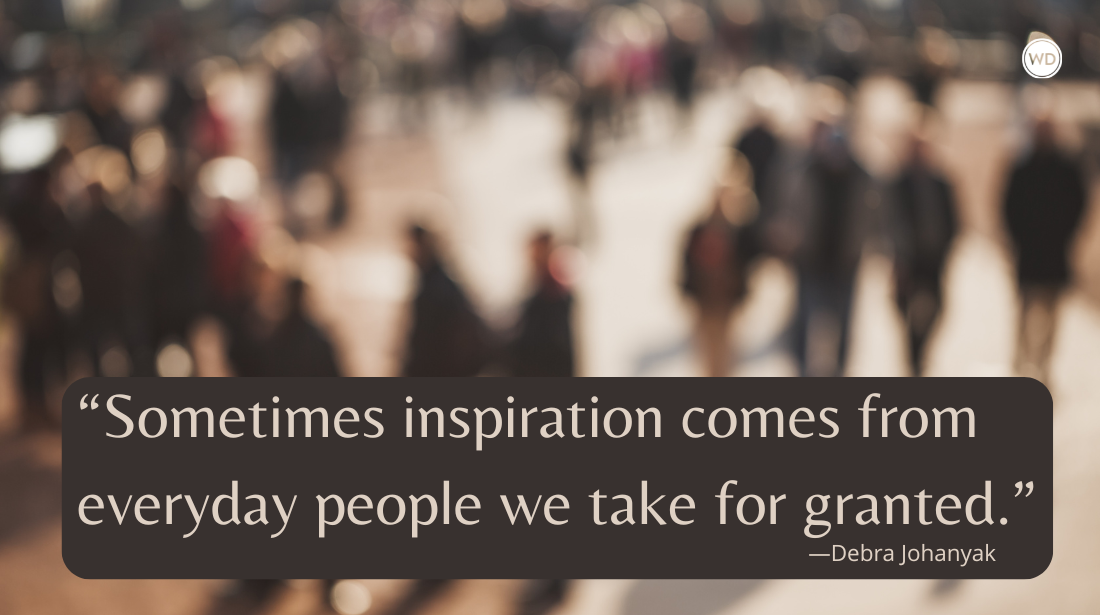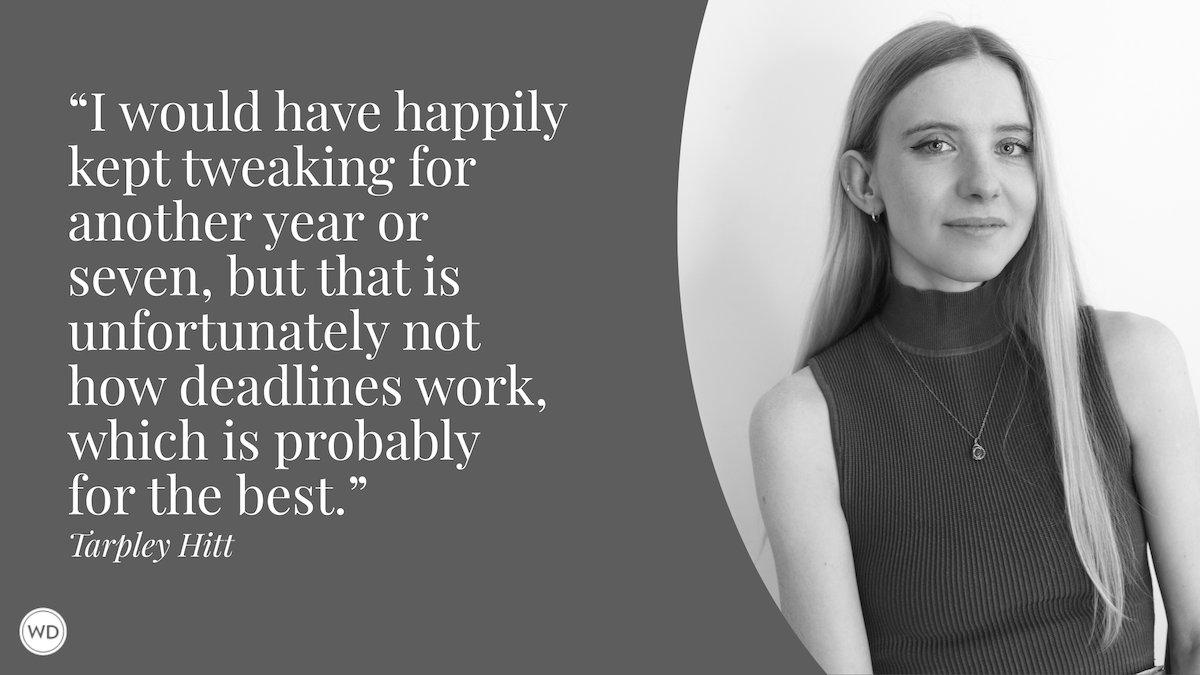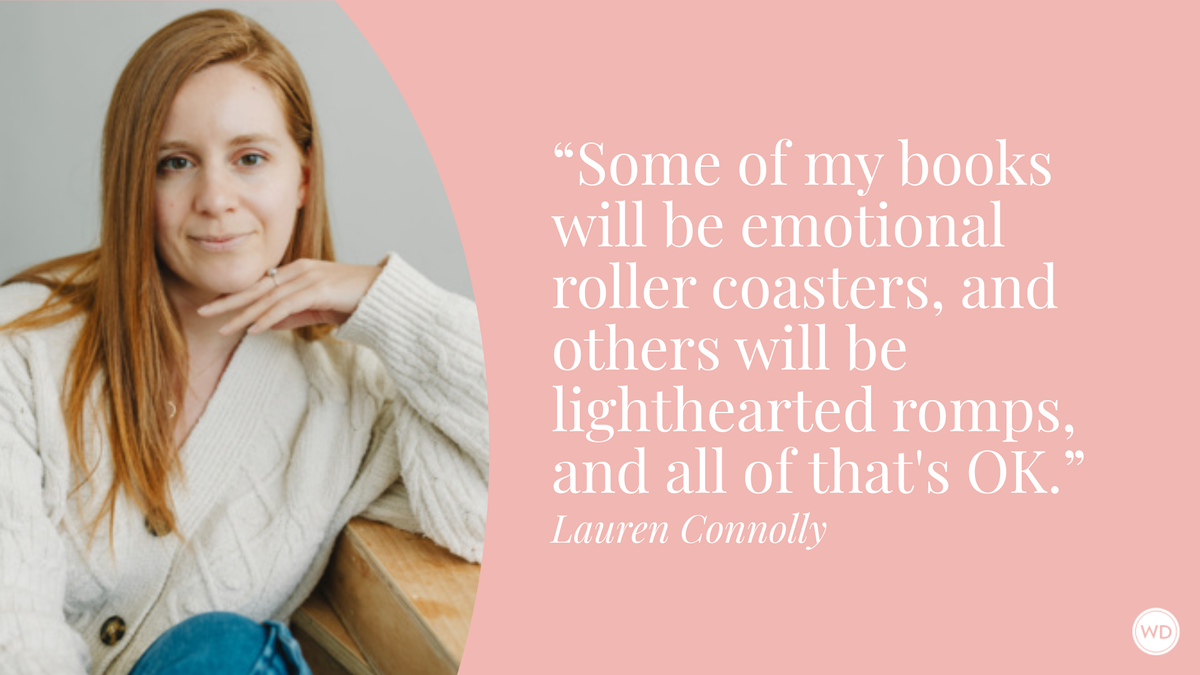5 Helpful Lessons for Writing a Novel
No doubt about it: writing a novel isn’t easy. But use these lessons to help make it (slightly) easier.
No doubt about it: writing a novel isn’t easy. But our desire and drive to do so keep us at it. I finally embarked o the novel I’d promised myself after years and reams (virtual and otherwise) of writing how-to articles and other nonfiction.
My first reaction—excitement! I was thrilled that I’d plunged in at last, and an outline streamed out. Oh boy! This is great! This will be great!
But a few days later, when the outline had fleshed out and the writing had to begin, my elation plummeted. Truth settled in: I must write. Despite my beautiful outline, I felt helpless. Where to start?
This guest post is by Noelle Sterne. Author, editor, dissertation and writing coach, and spiritual counselor, Noelle Sterne has published over 300 pieces in print and online venues, including Author Magazine, Chicken Soup for the Soul, Children’s Book Insider, Funds For Writers, Graduate Schools Magazine, GradShare, InnerSelf, Inspire Me Today, Pen & Prosper, Romance Writers Report, Textbook and Academic Authors Association, Transformation Magazine, Unity Magazine, Women in Higher Education, Women on Writing, Writer’s Digest, and The Writer. She has also published pieces in anthologies, has contributed several columns to writing publications, and has been a volunteer judge for Rate Your Story. With a Ph.D. from Columbia University, Noelle has for 30 years assisted doctoral candidates to complete their dissertations (finally). Based on her practice, her handbook addressing dissertation writers’ overlooked but very important nonacademic difficulties was published in September 2015 by Rowman & Littlefield Education. The title: Challenges in Writing Your Dissertation: Coping with the Emotional, Interpersonal, and Spiritual Struggles. In Noelle`s previous book, Trust Your Life: Forgive Yourself and Go After Your Dreams (Unity Books, 2011), she draws examples from her academic consulting and other aspects of life to help readers release regrets, relabel their past, and reach their lifelong yearnings. Visit Noelle at her website: trustyourlifenow.com.
Lesson 1: Look for Saviors
As so often happens, when the need appeared, solutions emerged. My entire inbox was suddenly filled with newsletters, features, and announcements about novel writing. I collected them.
At the start of every writing session, I read one or two: “Three Tricks to Warm Up to a Character You Hate.” “Four Highly Effective Habits of Reluctant Writers.” “Five Ways to Cut the Flab from Your Novel’s Mid-Section.” “Seven Sparks to Jumpstart Your Creative Battery.” “Ten Meditations to Find the Meaning of Your Novel.”
Yes, these articles were reminders. No, reading them wasn’t cheating. Okay, maybe avoiding my writing time while the timer for the session clicked away. But reading those articles was also part of warming up before jumping in. And maybe exploring essentials, at least a little, before the novel’s purpose became clearer.
In these articles, I discovered answers I needed for direction and forward motion in the novel. Royce Buckingham, for example, talked about adequate preparation “during the crucial ‘pre stage,’” before beginning to write, the “important preparatory steps” (Course description, Before You Write: “Take a month to save yourself a year,” Pacific Northwest Writers Association Conference, Saturday July 30, 2016). He said, “Think before you write. Get your story straight in your head before you ever sit down ("Six Minutes With Royce Buckingham," Litpick).
Lesson 2: Ask Crucial Questions
I used to disdain such preparation. If you want to write a novel, I arrogantly thought, just do it. Who needs all the delving, exposition, figuring out, prethinking, preliminary description and dissection?
Abashed revelation: I did.
Those articles led me to stop forcing out the writing, to clear out my muddy mind, and, before beginning, to answer several crucial questions.
- Why do I need to write this?
- What do I want to show?
- What do I want the reader to experience?
- Who is this main character?
- What does she/he want?
And more. Writer and ghostwriter Melinda Copp in Three Reasons You’re Still Struggling to Write Your Book (The Writer’s Sherpa) suggested we ask ourselves other equally important questions:
- What is your story really about?
- Who does your book really help?
- What lesson do you want your readers to take away from your book?
- What transformation does your information provide for people?
These questions compelled me to think about the Why, How, and Where of my novel. I had to repeat to myself that, rather than fill some ridiculous quota of xxxxxxxxx words a day, I should step back, think, and take the time to clarify in print what the hell I was doing.
Lesson 3: The Resistance Can Be Difficult to Overcome
I found, though, I rebelled at answering these questions and just sat painfully at the computer. My opposition stemmed from another idea I’ve had to admit often controls me: “prethinking” would cut off creativity. As a longtime proponent of the creative fog school of writing, I didn’t exactly wait for the Muse to deign to descend. But I would type with my eyes half-closed in blissful semi-consciousness. Reconciliation of all that linear question-answering with my method seemed impossible. Yet I couldn’t continue to sit and watch the lint collecting on my keyboard.
Lesson 4: Surrender And Answer The Questions
So, realizing the source of my block, in a new file headed “Q&A,” I typed all the questions, most times having no idea of any cogent, self-respecting writerly answers. But eventually, quickly or not so, they came. That ever-mysterious process of not knowing and then somehow listening inside is one of discovery and uncovering.
Neither is the Q&A exercise stalling. Think of it as priming the pump. Are we expected to suddenly sit down and start typing at NASCAR speed? Sometimes we do so, but often we sit, stare, and groan inwardly.
Answering the questions, though, doesn’t mean the whole novel is zipped up neatly like an obsessive’s suitcase. I’ve always loved, and fallen back on, a well-known quote by E.L. Doctorow: writing is “like driving a car at night; you never see further than your headlights, but you can make the whole trip that way” (quoted in George Plimpton, “E. L. Doctorow: The art of fiction,” no. 94. Paris Review, 101, 1986). And I believe in that unknowing. It can yield the richest fields.
Nevertheless, the question-answering helped me crystallize my purpose, mission, focus, themes in the novel. And priming that pump gave me direction in the novel and drive to continue steering the car, even if I couldn’t—and can’t—see very far and may rearrange the very map. (A bonus: The more we refine our themes and focus, the easier we can produce that mesmerizing, all-important agent query letter.)
Lesson 5: Don’t Be Rigid And Embrace Where Creativity Takes You
Nevertheless, changing the map may mean letting the car veer onto side roads you had no idea existed. I experienced this many times in the novel—a minor character who became crucial to the momentum, a major character who receded, a scene that sprang up and unraveled like a movie when a character took over.
So, in addition to getting serious about those questions, one of my lessons was, maybe paradoxically, to let the prose come the way it wants to. Allow it room. Let go of how should be and what it should sound like (and of course judging how badly it’s emerging).
As frustrated as you may get, as I do, a novel is not written in a straight line. It becomes better when we follow the creative, sometimes overlapping, circles of definiteness and allowing. My greatest lessons? Accept the process, listen, and just keep at it.
ORDER NOW:
The Write a Breakout Novel This Year Collection is designed to
help you succeed with proven tips on structures, hooks,
characters, dialogue, viewpoints, settings, and more.
Only available online here at the WritersDigestShop.
Other writing/publishing articles & links for you:
- How long should novel chapters be? Click here to find out.
- You started a blog -- now what? Here's how to get people to read your posts.
- How to pitch agents at a writers' conference.
- Understanding Book Contracts: Learn what’s negotiable and what’s not.
- New Agent Alerts: Click here to find agents who are currently seeking writers.
- Download a year's worth of writing prompts right here.
Thanks for visiting The Writer's Dig blog. For more great writing advice, click here.
Brian A. Klems is the editor of this blog, online editor of Writer's Digest and author of the popular gift bookOh Boy, You're Having a Girl: A Dad's Survival Guide to Raising Daughters.
Follow Brian on Twitter: @BrianKlems
Sign up for Brian's free Writer's Digest eNewsletter: WD Newsletter
Brian A. Klems is the former Senior Online Editor of Writer’s Digest, and author of Oh Boy, You’re Having a Girl (Adams Media/Simon & Schuster). Follow him on Twitter @BrianKlems.





